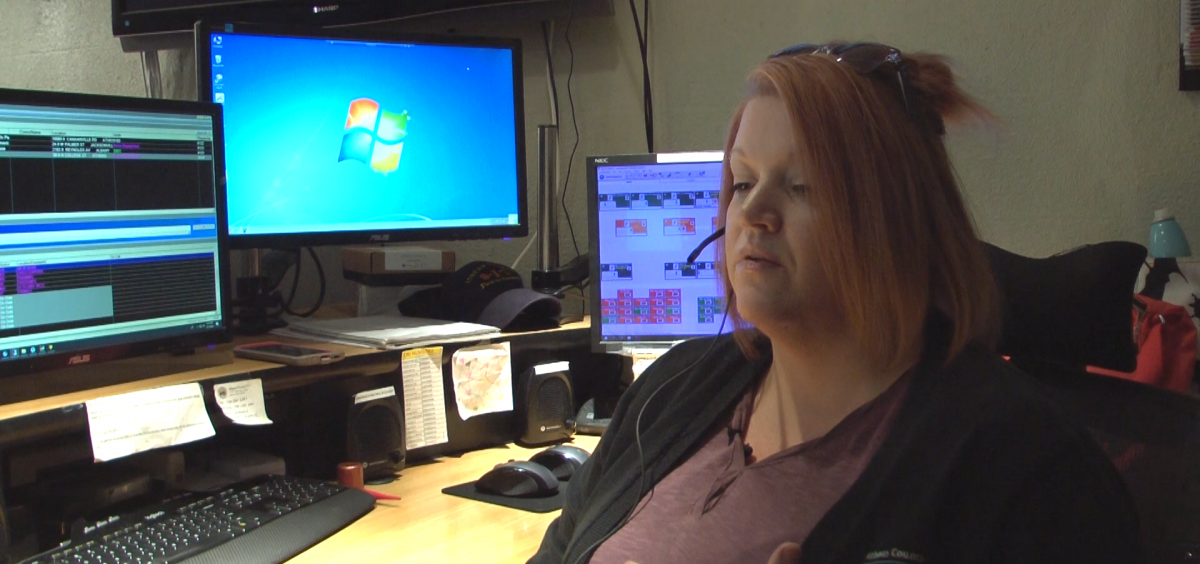
The Faceless Heroes behind Those 9-11 Calls
By: Hardika Singh
Posted on:
ATHENS, Ohio – The 47-year-old lieutenant of Athens County Sheriff’s Office urged people to celebrate National Public Safety Telecommunicators Week from April 14-20.
Aaron Maynard, who is also the interim director of the 9-11 Center, said it is important to recognize and appreciate dispatchers – the faceless heroes of society, who are on call 24/7 and work in the confines of a 15 by 12 foot windowless room.
“I think it’s important that each day throughout this week that we give them a small token of thank you and appreciation and hope that they feel good about what they are doing because certainly what we are asking of them is difficult on a day-to-day basis,” Maynard said. “Maybe we can bring down the stress a little bit, just for this short period of time.”
The average career length of dispatchers is only 3-5 years, but most Athens 9-11 dispatchers have been on the job since the ‘90s.
Dispatcher Elizabeth McQuade said she loves the job because she gets to provide support to seniors whose spouses may have died, but she said the worst part is when she is unable to help provide a positive outcome.
“You want to be like a mother to them,” she said. “You don’t want them to suffer, but then you have to realize that we’re only human and there is only so much we can do because we are inside this building and inside this room with this equipment that only will allow us to do so much.”
To prevent burnout, McQuade said dispatchers must steel themselves for those difficult outcomes.
“You have to harden that fact that and be able to get over the hump of feeling that I could have done more,” she said. “Until you have done that, the job is really hard to do.”
This stress often continues outside the workspace, McQuade said, where many dispatchers often cry after they get home, fight with their family or sleep, even if they know they tried their best.
“Knowing that you did the best you can do, each and every day you walk through the door, to make somebody’s day in potentially the worst day of their life a little bit better,” said Dispatcher Teresa Savage. “Then we consider that successful.”
McQuade said dispatchers must respond even to those calls that will not have a positive outcome.
“You got to take what you have and go with it and try to be positive and be encouraged that it’ll get better, or something will change to make it better,” she said. “And it generally does – or we come to work and take it out on each other.”

